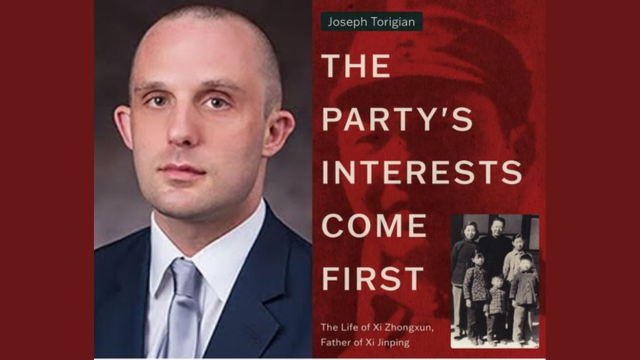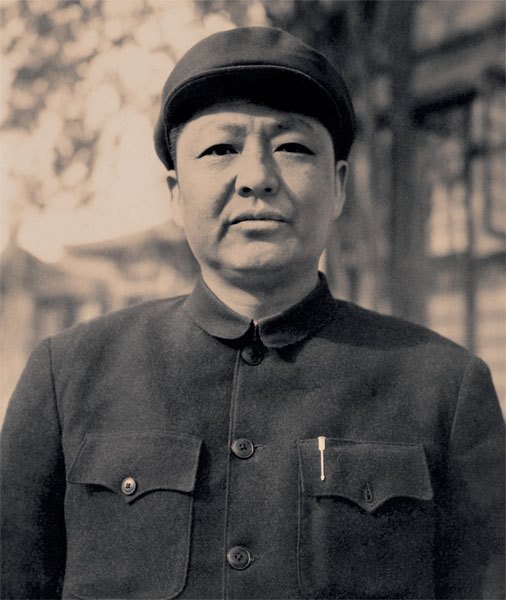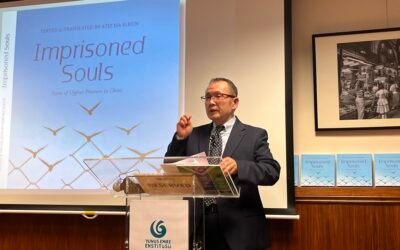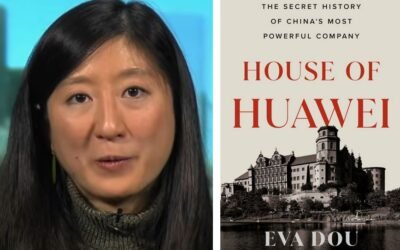Joseph Torigian’s “The Party Interests Come First” focuses on an important yet often misunderstood Chinese revolutionary.
by Massimo Introvigne

“The Party’s Interests Come First: The Life of Xi Zhongxun, Father of Xi Jinping” (Stanford University Press, 2025) by American academic Joseph Torigian provides a detailed account of Xi Zhongxun’s life, highlighting the significant events and experiences that shaped him and his role within the Chinese Communist Party (CCP). It is the first biography of Xi Zhongxun written in English, and it is also helpful in understanding Xi Jinping.
Xi Zhongxun was born in 1913 in the barren northwest of China amid significant upheaval, as European imperialism was unraveling agrarian empires, including Qing China. His formative years were filled with severe adversity, such as famine and violence, which greatly shaped his perspective. At 14, he shocked many by attempting to kill his teacher, an act that highlights the desperation and chaos surrounding his early life. His first wife was deemed eligible for marriage only because her initial husband was killed by a warlord, and she had to bury him herself.
Zhongxun’s suffering, as well as that of those around him, ignited within him a desire for purpose and meaning. He discovered Communism almost serendipitously, initially introduced to its principles by a teacher and later by a fellow inmate. His deep commitment to the cause was sparked not through Marxist-Leninist literature but rather through the novel “The Young Wanderer” by Communist novelist Jiang Guangci, which resonated deeply with his experiences of hardship. This unexpected encounter directed him toward steadfast loyalty to the CCP.
Throughout his life, Zhongxun faced many challenges while serving the Party. He infiltrated the Nationalists, survived multiple assassination attempts, and emerged as a vital leader in the northwest base where the Communists ultimately established themselves in Yan’an. His commitment to the Party was profoundly personal, as it transformed into his surrogate family following the death of his parents and the loss of his siblings to famine.

Zhongxun is frequently celebrated for his conciliatory tactics and efforts to engage local power brokers instead of forcing them. Still, his dedication to the Party’s goals was steadfast. He adhered to Mao’s execution quotas in Xi’an and was quiet during the Tiananmen crisis, expecting Deng Xiaoping’s brutal reaction. He consistently prioritized the Party’s interests whenever he felt they were threatened, and taught his family to do the same.
The book further explores the broader historical context, highlighting significant events such as the Great Leap Forward and the rise of the Special Economic Zones (SEZs). It illustrates how outsiders and insiders often misinterpret these events and the contributions of key individuals like Deng Xiaoping and Hua Guofeng. Torigian also mentions Xi Zhongxun’s work with religion and his attempts to implement Mao’s directives aimed at controlling religious organizations, including the Roman Catholics, through the creation of the Patriotic Catholic Church.
Victim of a purge in 1962 and jailed during the Cultural Revolution, Xi Zhongxun was rehabilitated only in 1978. He died in 2002.
Xi Zhongxun’s life and legacy are also explored through the perspective of his son, Xi Jinping. The book indicates that his father’s example significantly shaped Xi Jinping’s dedication to the Party. Even during his father’s persecution, Xi Jinping stayed loyal to the Party, interpreting Zhongxun’s suffering as a painful sacrifice, yet one needed for the sake of the CCP.
The book paints a detailed and nuanced picture of Xi Zhongxun, shedding light on the internal contradictions within the CCP and the intricate relationship between personal experiences and political dedication. Ultimately, for Xi Zhongxun and his son, the Party’s interests always come first.

Massimo Introvigne (born June 14, 1955 in Rome) is an Italian sociologist of religions. He is the founder and managing director of the Center for Studies on New Religions (CESNUR), an international network of scholars who study new religious movements. Introvigne is the author of some 70 books and more than 100 articles in the field of sociology of religion. He was the main author of the Enciclopedia delle religioni in Italia (Encyclopedia of Religions in Italy). He is a member of the editorial board for the Interdisciplinary Journal of Research on Religion and of the executive board of University of California Press’ Nova Religio. From January 5 to December 31, 2011, he has served as the “Representative on combating racism, xenophobia and discrimination, with a special focus on discrimination against Christians and members of other religions” of the Organization for Security and Co-operation in Europe (OSCE). From 2012 to 2015 he served as chairperson of the Observatory of Religious Liberty, instituted by the Italian Ministry of Foreign Affairs in order to monitor problems of religious liberty on a worldwide scale.



